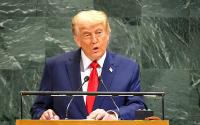27 January 2007Steve Bloomfield
At the height of summer, Nokholekile Mtina's small brick house feels like an oven. The corrugated iron roof has no insulation so Mrs Mtina and her four children have to cope with extremes. When the temperature drops outside, it plummets inside.
The strip lighting tied to the ceiling and the television on the sideboard are a luxury - to be switched on only when they can be afforded. Even hot water is not to be used every day. The cost of electricity in this South African township is simply too high. Mrs Mtina's experience is not unusual. Proper insulation is a rarity; energy-efficient light bulbs and solar power, which would dramatically cut the cost of electricity, a mere pipedream.
But in Kuyasa, a settlement of newly built homes in the Khayelitsha township on the outskirts of Cape Town, it was not supposed to be like this. With great fanfare, Britain announced two years ago that the G8 summit in Gleneagles would be "carbon neutral". The cost to the environment of flying seven heads of state and their delegations to an exclusive hotel outside Edinburgh would be offset, the Government said, by paying £100,000 for 10,000 tonnes of carbon saved by a new development project in a Cape Town township.
The project in Kuyasa would provide energy-saving light bulbs, solar-powered hot water and roof insulation for the settlement's 2,300 households. But two years on, Britain's £100,000 remains in the Treasury while the Kuyasa project struggles to get off the ground. "It was very nice politically for the British Government to say 'We've done this', but they haven't actually done anything yet," said Stefan Raubenheimer, chief executive of South South North, a development agency involved in the project. "They were seduced by the political kudos."
The merits of carbon offsetting are increasingly being questioned by environmental experts. Critics argue governments, companies, even individuals, can pay for someone else to reduce their carbon emissions while doing nothing to cut their own carbon footprint. But as the problems faced by the Kuyasa project have now proved, it is not as straightforward as it may appear.
The British Government has frequently highlighted the "carbon neutral" G8 summit as an example of its commitment to tackling climate change. But the truth is very different. "In their drive to prove they had held a 'carbon neutral' event they ignored the reality," said Mr Raubenheimer.
"There is a very high risk to these sorts of projects. It is not as simple as making an announcement."
The delay in the G8 project is likely to be an embarrassment to Downing Street as Tony Blair today addresses the World Economic Forum in Davos. The Prime Minister will claim that Britain is setting the international agenda as he calls for a major effort this year to reach a global agreement to stabilise carbon emissions to combat climate change, a new trade deal and further progress on tackling Africa's problems by delivering the promises made at the G8 summit at Gleneagles in 2005.
The Kuyasa project is a Clean Development Mechanism (CDM) programme. CDMs help to fund environmentally friendly development in poorer countries. Countries signed up to the Kyoto Protocol, like Britain, pay for the carbon which a CDM project saves as a way of offsetting their own emissions.
Kuyasa was the first CDM in Africa and is set to save 6,580 tonnes of carbon emissions each year once the project is up and running. But CDM projects have proved to be very hard to get off the ground. It is estimated that up to half of such projects never reach fruition. Kuyasa is a case in point. "It is hanging in the balance," said Mr Raubenheimer. "It has been very difficult to get the funding for Kuyasa. It would have been very nice if the British Government had gone a step further and provided some of the finance for the project."
Mrs Mtina would certainly appreciate it. Together with her husband, Nkoluleko, she has a monthly income of 800 rand - the equivalent of around £60. Of that, 120 rand, more than one seventh of their income, is spent on electricity. "It costs us too much," she said. "It makes life very hard." The Kuyasa project has been able to fund a pilot which has seen 10 homes in the community fitted out with energy-saving light bulbs, solar-powered hot water and insulation for the ceiling. Mrs Mtina's next-door neighbour, Lydia Dyasi, is one of the lucky ones.
"It has made a huge difference to our lives," said 47-year-old Mrs Dyasi, who shares her home with her husband, five children and one grandchild. "I feel like we live in a home - not a house."
South South North is still confident the funding will be found. If and when it is found, Britain's £100,000 will be spent on the first 10,000 tonnes of carbon. "If it goes through, the delivery of carbon will actually happen," said Mr Raubenheimer. "It will be five years after the fact, but it will still happen."
And if it does happen, Mrs Mtina and her four children will be among the first beneficiaries. "It will mean less sickness for my children and I won't have to spend as much on electricity," she said. "It will make a big difference."
http://news.independent.co.uk/environment/article2190039.ece






